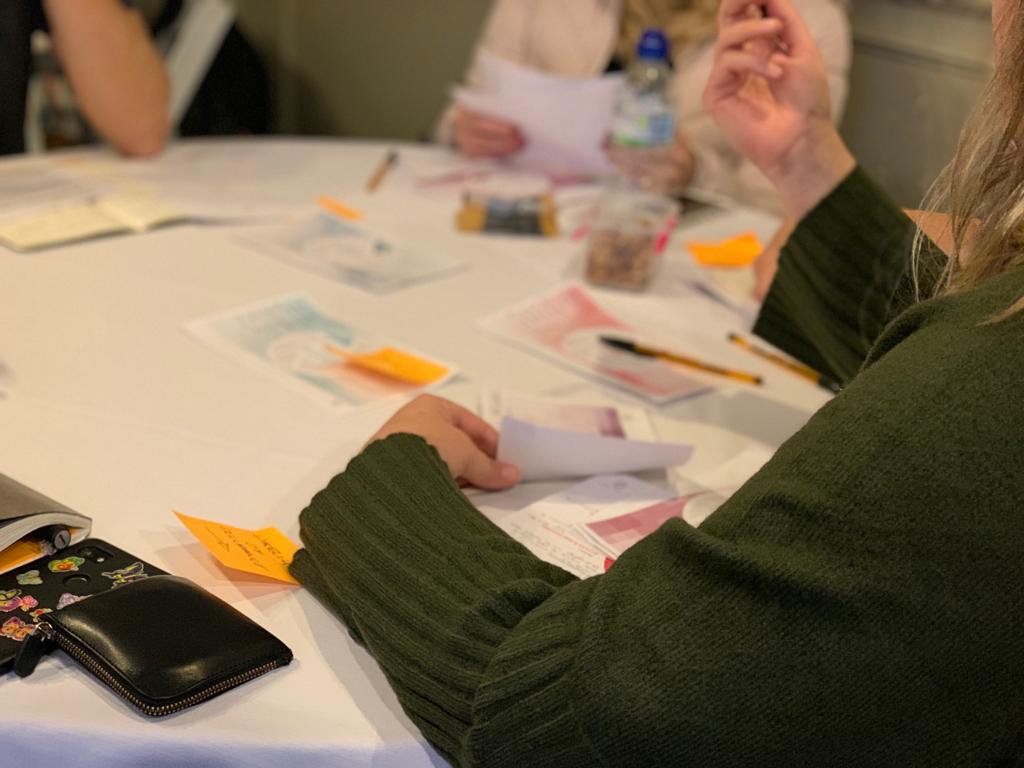For those who know me, and who have long endured my friendship, you’ll know I bang on about ethics, and particularly tech ethics, a lot. Just look at the Tech for Good Live podcast if you want an example, or watch this talk that I gave at UX Copenhagen. A bit of a warning though – the conference was run remotely due to Covid-19, so there is a lot of my face in the video.
Back to ethics… I was even talking about it before it was cool. Although, if it is cool now, why am still so alone? I guess that’s a question best left for another day.
Here’s the thing, it’s easy to call out Twitter and Facebook as being awful (they are). It’s easy to say that Jeff Bezos is a piece of human garbage (he is). It’s easy to delete Uber for their treatment of their employees freelance-workers-who-are-very-happy-with-their-job-and-lack-of-benefits. There’s a load of great, fun people you can follow who will call those big tech ass-hats out all day.
But whilst it’s easy to give shade in their direction for their unethical businesses and personal behaviour. How well do we hold up to scrutiny? How do we define our own business ethics? How do we make sure our own products aren’t inadvertently causing harm?
Oh – and I’m aware that the term ethics can make people get twitchy. I don’t want us to get bogged down in a conversation on moral philosophy. I’m talking about how we reduce the bad things happening in the world. If the terminology here is a blocker for you, feel free to switch it out for something else.
Thinking more responsibly about what we’re designing and building is a hot topic at the moment. Thankfully, we’re all more familiar with implementing accessibility and trying to avoid dark patterns with our products than we’ve ever been. There’s still a long way to go, but it’s encouraging to see the changes happening. We all know that AI can do harm due to being designed by bad, irresponsible and/or ignorant actors. Yet people keep on making bad decisions and allowing their products to do harm. One of the most challenging aspects of the weekly Tech for Good Live podcast is whittling down all the dreadful examples into a 1 hour show.
So, if we’ve progressed as an industry and we know better, why do people keep making these decisions?
Sometimes, or maybe even most times, doing the right thing costs money. In some cases it may even undermine the entire existing business model. For examples, see the damage that Airbnb has done to entire communities. Or the devastation that Amazon has caused to business and individuals across the world by their business practices and tax schemes. Or the commoditisation of data by Facebook. Or Backpage’s facilitation of the sex trafficking of children. I kid you not. Listen to this podcast with Mary Mazzio.
I hate to be blunt (jk), but if you’re not spending money or time (which is often money in this industry) on your ethical standards, and on diversity, and on equality. Well, quite simply, you don’t care about them. Your budget line is the best place to reflect on your priorities.
I get it, though. This stuff isn’t easy. Sometimes the reason for stalling is because we don’t know where to start. If that’s you, then you are exactly the people I’m interested in working with. Doing things right, isn’t easy. Most things worth doing aren’t. It can be really difficult spotting the potential future harm of something that doesn’t even exist yet, and in communities we don’t understand.
But doing this gets easier every single day. There are a bunch of open tools, lists and articles out there that help you consider how your product might do harm to certain people or communities. But despite these tools still being out there, we see new projects, new products and services launch on a daily basis that can cause real issues. In a world of Covid-19, where the push to move rapidly into digital has only increased, this has gotten worse.
This is why I’ve been running workshops to help with this exact issue. I’ve run them at conferences (say hi if you’ve been in one) and I’ve run them with product teams.

These workshops are helpful because there isn’t a one-size-fits-all standard we can apply. It isn’t as easy as grabbing something from somewhere else and slapping it into your process. Nor is there a word document you can fill out one time, and file it away and forget about it. Box well and truly ticked.
We need to take this seriously. We need to ensure that it’s an iterative process. That’s because we know that we’ll grow and change. As we do so, we’ll bring more people and experiences into our teams. As society itself learns and grows and progresses, we need to be able to adjust and grow in terms of our ethical values.
The ethics workshop that I run has some theory. Sure. We point you in the direction of some other resources to help you stretch yourselves in terms of your understanding of ethics.
But the real value is that we get into the details. We examine your product or service. We look at the risks involved (and there are always risks) and we weigh them. We look at conflicts and clashes. We help facilitate tough decisions and compromises (there are always compromises).
And at the end of the workshop you’ll have a draft ethical specification. It’s a working document. It is as essential to your project as your design spec and your technical spec. It helps you make wise decisions. It helps you make safe decisions.
This isn’t something just for the social sector, although as you’d imagine, our charity clients are particularly interested in this. This is vital for everyone running or building a live service or product.
You should be able to point in the direction of a functional specification that lays out your ethical values in a way that you can easily apply them, and make design and business decisions based upon them.
Literally everything we design and build should be doing this. Building an ecommerce solution? You need an ethical spec. Building a weather app? You need an ethical spec (and a different product idea to be honest. Serious. Stop). Building a WordPress site for your sourdough starter kit progress updates during lockdown? Erm… ok, maybe not everything needs an ethical spec. Also, are you ok?
If you want to know more about the ethics workshop, get in touch.
